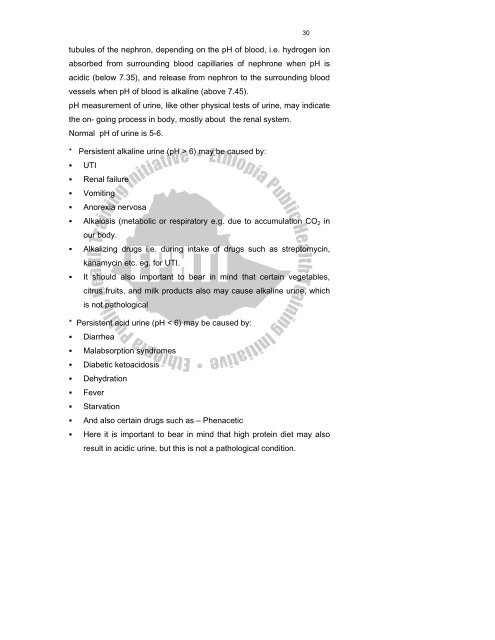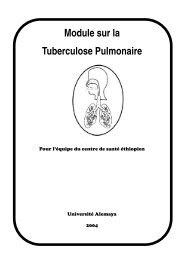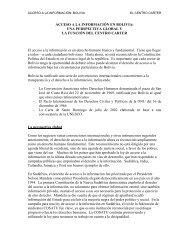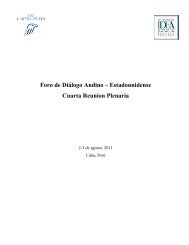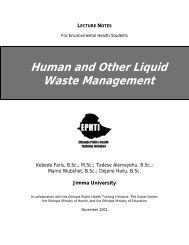Urinalysis - The Carter Center
Urinalysis - The Carter Center
Urinalysis - The Carter Center
Create successful ePaper yourself
Turn your PDF publications into a flip-book with our unique Google optimized e-Paper software.
tubules of the nephron, depending on the pH of blood, i.e. hydrogen ion<br />
absorbed from surrounding blood capillaries of nephrone when pH is<br />
acidic (below 7.35), and release from nephron to the surrounding blood<br />
vessels when pH of blood is alkaline (above 7.45).<br />
pH measurement of urine, like other physical tests of urine, may indicate<br />
the on- going process in body, mostly about the renal system.<br />
Normal pH of urine is 5-6.<br />
* Persistent alkaline urine (pH > 6) may be caused by:<br />
• UTI<br />
• Renal failure<br />
• Vomiting<br />
• Anorexia nervosa<br />
• Alkalosis (metabolic or respiratory e.g. due to accumulation CO 2 in<br />
our body.<br />
• Alkalizing drugs i.e. during intake of drugs such as streptomycin,<br />
kanamycin etc. eg. for UTI.<br />
• It should also important to bear in mind that certain vegetables,<br />
citrus fruits, and milk products also may cause alkaline urine, which<br />
is not pathological<br />
* Persistent acid urine (pH < 6) may be caused by:<br />
• Diarrhea<br />
• Malabsorption syndromes<br />
• Diabetic ketoacidosis<br />
• Dehydration<br />
• Fever<br />
• Starvation<br />
• And also certain drugs such as – Phenacetic<br />
• Here it is important to bear in mind that high protein diet may also<br />
result in acidic urine, but this is not a pathological condition.<br />
30


